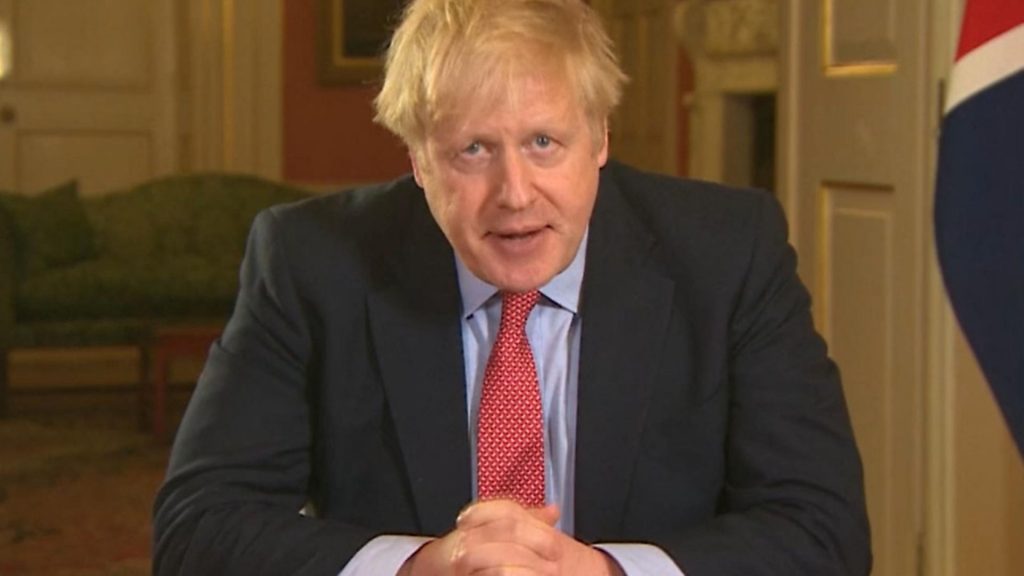
To offer greater leadership, the prime minister needs to learn the lessons of his political hero. Fast. LEIGHTON ANDREWS discusses the importance of communicating a message in a crisis.

The people taking key decisions at the centre of this unprecedented crisis are intelligent, hard-working and diligent, working under extreme pressure, at great pace and with facts and evidence that are being gathered in real-time. That’s not in doubt.
But the government’s communications do not inspire confidence. Alastair Campbell, who knows a thing or two about crisis communications, has published 20 recommendations for practical things the government should be doing. But Alastair’s key observation was the need for the prime minister to ‘narrate’ a strategy. Unlike his hero Churchill, Boris Johnson has failed in that. Even Monday’s address to the nation showed someone trying but failing to suppress his gung-ho bonhomie.
There are four key factors that can be discerned from Churchill’s communications in the Second World War. These are not my views – they are gleaned from the writings of his contemporaries, people who served with him or watched him at close distance. They are: clarity, gravity, preparation and discipline.
Clarity: Waffle won’t wash. Indeed, it confuses the message. Churchill could often be prolix in his orations but knew the importance of clarity and concision. Shortly after becoming prime minister in 1940, he wrote a minute to his War Cabinet headed ‘Brevity’. It’s as relevant today as when it was written. ‘To do our work’, said Churchill, ‘we all have to read a mass of papers. Nearly all of them are far too long. This wastes time, while energy has to be spent in looking for the essential points.’ This was not a plea for recommendations without evidence – where needed, that should be given in an Appendix. The demand for brevity, to Churchill, wasn’t simply about the use of time. It was about getting clarity. This one-page memorandum ended ‘the discipline of setting out the real points concisely will prove an aid to clearer thinking’.
Gravity: Churchill didn’t treat the British people as idiots. He believed they liked to be told how bad things would get. He set out the difficulties with honesty. He also used humour wisely. Sir Ian Jacob, military assistant secretary to the War Cabinet, and later BBC director general, recalled ‘humour in debate was not precluded, provided it did not degenerate into levity’. Churchill wouldn’t have offered ‘Operation Last-Gasp’ in a meeting or conference call as Johnson is alleged to have done with industrialists in discussions on ventilator manufacture. Churchill had strong views on the naming of key war-time operations, stressing that they should not be frivolous or boastful. He understood the dignity of state office. It wasn’t a game.
Preparation: Jacob said Churchill’s ‘passion for detail is well known’. What most impressed people about Churchill, Jacob recalled, ‘was the fury of his concentration’ and his relentless focus. The diaries of his assistant private secretary, Jock Colville, are littered with references to his preparations for speeches. A frequent opponent, Aneurin Bevan, recorded that Churchill ‘prepared his work with care and polished and re-polished it’. The chief of the imperial general staff, Sir Alan Brooke, who frequently clashed with Churchill, recalled in his diaries that he often had to help in the final stages of Churchill’s speech preparations: ‘The whole cabinet table had usually been littered with segments of the speech which had been returned by various people with remarks of criticisms. He worked at tremendous pressure on these occasions.’
Discipline: Churchill wasn’t perfect in his war-time judgements and not all his speeches worked. But clarity, gravity and detailed preparation were underpinned by discipline. In the midst of crisis, Churchill understood the importance of discipline for getting his message across. Bevan recalled that Churchill’s speeches ‘advanced along a broad sweeping front, making this point, then another, paragraph by paragraph, a majestic progress’. Clement Attlee explained how Churchill provided the narrative for the war effort. ‘If somebody asked me what exactly Winston did to win the war, I would say ‘Talk about it”.
Clarity, gravity, preparation, discipline. None of these are words that are likely to be associated with the current prime minister whose slap-dash extemporising has delivered mixed messages. Where Macron, Merkel, Sturgeon, Varadkar and even Rishi Sunak have been clear and controlled, Johnson has jabbered.
Churchill of course didn’t face 24-hour news or real-time social media. But he knew the importance of message discipline in a crisis. The prime minister should re-read his own book on Churchill, particularly this: ‘Churchill’s speeches were a triumph of effort, and preparation.’ From now on, he has to stay scripted.
• Leighton Andrews is professor of public leadership at Cardiff Business School, and a former Welsh government minister
Warning: Illegal string offset 'link_id' in /mnt/storage/stage/www/wp-includes/bookmark.php on line 357
Notice: Trying to get property 'link_id' of non-object in /mnt/storage/stage/www/wp-includes/bookmark.php on line 37






